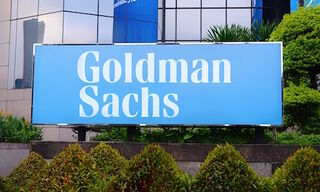Global Banks React to Iran Attack on Israel
Over the weekend, Iran launched a direct attack on Israel as part of the escalating conflict in the Middle East. Global banks react to the heightened tensions and the potential impact on markets.
Last Saturday, Iran fired more than 300 drones and missiles against Israel in what was viewed as retaliation to strikes on Iranian military leadership in Damascus around two weeks ago. This is yet another escalation since the Hamas-led attack against Israel on October 7.
Diplomats are sounding the alarms with UN Secretary General Antonio Gueterres describing the Middle East as being «on the brink […] of a devastating full-scale conflict», according to a statement. What say the banks?
Geopolitical Outlook
On the potential military response, OCBC noted that recent history suggests that the situation may not escalate sharply, citing non-lethal attacks on military bases after the US killed Islamic Revolutionary Guard Corps General Qassem Soleimani in 2020.
«It is likely that Iran will prefer to avoid a direct all-out war against Israel because it knows that it could suffer significant damage if Israel’s allies like the US, UK and Europe, which have significant military might, collectively enter the fray and launch direct attacks on Iran,» said OCBC investment strategist Vasu Menon in a note.
Economic Impact
Menon advised investors that there were «no reasons to panic», warning against «impulsive short-term decisions based [on] geopolitical developments that may not have lasting impact on the medium-term economic outlook». In fact, an analysis cited in Citi’s 2024 outlook showed that 90 percent of geopolitical events have not changed the direction of the world economy.
«[W]e advise global investors to consider regional security events and global economic activity independently. Multiple conflict zones and economic growth have generally co-existed for much of history,» said Citi Global Wealth in a chief investment officer strategy bulletin. «Most [geopolitical shocks and conflicts] have had very short-lasting impact on financial markets.»
Consensus Oil Call
Nonetheless, there are expectations of short-term impact, particularly in the commodities market. The consensus call from banks was that oil would undergo at least a temporary price spike due to investor fear of production loss.
«The heightened tensions may add a temporary geopolitical premium to crude oil prices,» said Standard Chartered in an investment note.



























